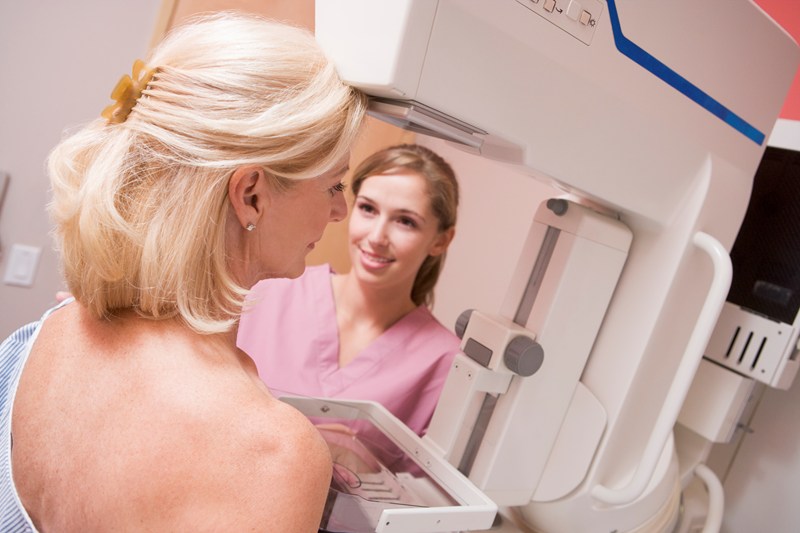Breast cancer can return after successful treatment. The initial treatment involves eliminating all cancer cells, but it is possible for a few to survive. These undetected cells can multiply again and develop into breast cancer. You may develop cancer again several months or even years after your initial treatment. It can come back in the same place (local recurrence) or affect another area of your body (distant recurrence). It is important to get information not only about breast cancer but about recurrent breast cancer as well. Here is what you should know.
How Do I Know If My Breast Cancer Recurs?
It is important to keep examining your breast even after the initial treatment of breast cancer. Be sure to check the treated area as well as your other breast for any signs of recurrence. Immediately inform your doctor about any changes you notice in your breasts.
It is equally important to get regular mammogram. It is better to go to screening centers where they have three-dimensional mammograms available for accurate results. An MRI is also ordered in case your genetic tests confirm you have the BRCA mutations. Work with your doctor to find the best screening test for you. Follow-up appointments are of great importance because your doctor can examine your breasts and look for any changes. They may even ask for certain symptoms that you may be experiencing. Share whatever issue you have, including headaches, pain, lack of appetite, weight loss, or anything else.

Signs of Recurrent Breast Cancer
Regular breast exams are important but you should also have complete information about specific signs of breast cancer. Here is more about it.
- Local Recurrence
A local recurrence means the cancer returns in the treated breast. This is usually common in case you have had lumpectomy because cancer could grow in the remaining breast tissue. In case of mastectomy, the cancer could still recur but in the tissue that lines your chest wall. Some of the most common symptoms of a local recurrence are nipple discharge, skin inflammation, changes to the skin of your breast, and a new lump.
After a mastectomy, you may develop painless nodules under or on the skin of your chest wall, which indicates a local recurrence. Some women also develop a new area of thickening near the mastectomy scar – it could also be along the same scar.
- Regional Recurrence
It means the cancer returns but affects the nearby lymph nodes and not the same area treated before. The most common signs of regional recurrence may include a lump in the lymph nodes in your neck, in the groove, near your collarbone, or under your arm.
- Distant Recurrence
It means the cancer has spread to other parts of your body, most commonly the liver, bones, and lungs. In this case, you may experience certain symptoms, including weight loss, loss of appetite, difficulty breathing, persistent cough, seizures, and severe headaches.
What Increases Your Risk of Recurrent Breast Cancer?
Your healthcare provider considers prognostic indicators to determine your risk of cancer recurrence. Some common indicators include the following:
- You are more likely to develop cancer again if your lymph nodes were involved in the first instance.
- The size of your tumor determines a cancer recurrence.
- Histologic grade refers to the resemblance between the tumor cells and normal cells – the grading scale used is 1 to 4. You may have a recurrent breast cancer if you have had Grade 4 tumors in the first place.
- Nuclear grade refers to the speed at which cancer cells multiply themselves and people having cancer cells with a high nuclear grade are more likely to deal with recurrent breast cancer.
- Tumors with certain oncogenes are more likely to recur as compared to the others.
Ways to Reduce Risk of Recurrent Breast Cancer
You can take a number of steps to avoid dealing with breast cancer again. Here are some suggestions:
- Take special care of yourself emotionally. Join a support group, learn about new breast cancer research, and keep in close touch with your doctor to identify changes earlier.
- Pay attention to your physical health. You should exercise regularly and maintain a healthy body weight. Also, take steps to reduce stress, maintain a healthy diet, and limit alcohol consumption. Do not skip any of your scheduled screenings. You should spend at least 3-5 hours a week doing moderate exercises to keep you fit and limit stress.
- Pay special attention to your diet. Avoid diet high in calories and fat to lower circulating estrogen in the blood. A low-fat, low-calorie diet greatly reduce your risk of breast cancer. Include fruits and veggies in your diet, limit the intake of red meat, and opt for organic foods. Increasing your fiber intake and avoiding trans-fat will also help.
- Take steps to lower stress. It is never easy, especially after receiving cancer treatment. Still, you can join support groups, exercise regularly, and try breathing exercises to keep stress under control. Some people also benefit from journaling, acupressure, massage therapy, guided imagery, and yoga. Finding a hobby will also help keep you busy and fresh.
- Say no to alcohol to lower your risk of developing cancer. Heavy drinkers are at a greater risk of developing breast cancer because it increases circulating estrogen levels in the blood. If you have received cancer treatment in the past, you should not have more than one drink a day.
Treatments of Recurrent Breast Cancer
 What type of cancer treatment you received in the past will help determine the type of treatment suitable for local breast cancer recurrences. You may have to go for mastectomy for local recurrence if you have had a lumpectomy in the past. It is mainly because radiation therapy is not effective in the same area.
What type of cancer treatment you received in the past will help determine the type of treatment suitable for local breast cancer recurrences. You may have to go for mastectomy for local recurrence if you have had a lumpectomy in the past. It is mainly because radiation therapy is not effective in the same area.
In case you have undergone mastectomy already, it is important to first remove the tumor near the treated site. You will also receive radiation therapy in this case. It is possible to develop a new tumor in your other breast. In this case, your treatment would include a mastectomy or lumpectomy, along with systemic therapy.
You will be treated with systemic therapy using hormonal therapy, chemotherapy, or both in case of distant recurrence that involves organs such as the lungs, bones, liver, or brain. Surgery and radiation therapy is also considered an option in this situation.
